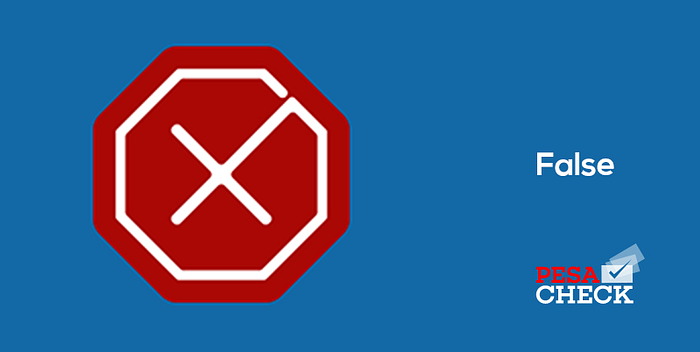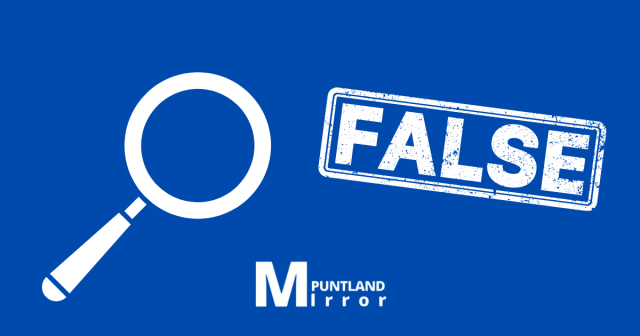The Ministry has disowned the advertisement.

This Facebook post with a poster claiming that Somalia’s Ministry of Education is offering free online courses and well-paying jobs is a HOAX.
The Somali text accompanying the post translates to: “The Somali Ministry of Education offers free online courses and high-paying jobs.”
The poster reads: “From August 2024, Somalia’s Ministry of Education will offer free education courses to anyone over 18 years of age. There are over 75 courses to choose from, and you’ll get a degree and a well-paid job opportunity when you finish.”
The poster attaches the logos of the Ministry and institutions such as the World Bank Group and UNICEF. It also states that applicants must be over 18 years old.
In Somalia, over 60 per cent of the population is under 25, and the youth unemployment rate is estimated at 67 per cent, one of the highest rates in the world.
But is the poster authentic?
The poster directs applicants to select their age to view course and job information via a link. PesaCheck clicked on the provided link, and we were led to this site containing six links to online courses and degrees. However, none of the courses were from Somalia’s Ministry of Education, raising suspicion about the post’s legitimacy.
To authenticate the claim, PesaCheck reviewed other Facebook pages that posted the claim. These pages lacked profile photos and had no available posts, as seen here.
Also, a review of the Ministry’s website, X (formerly Twitter) account, and Facebook page, where it shares its jobs, did not yield the post in question.
PesaCheck contacted Abdiaziz Wali, director of communications at Somalia’s Ministry of Education, who confirmed that the claim was false.
“The Ministry of Education, Culture, and Higher Education confirms that the messages posted on social media regarding free courses offered by the Ministry are false,” Wali responded via WhatsApp.
PesaCheck has examined a Facebook post with a poster claiming that Somalia’s Ministry of Education is providing free online courses and well-paying jobs and found it to be a HOAX.
This post is part of an ongoing series of PesaCheck fact-checks examining content marked as potential misinformation on Facebook and other social media platforms.
By partnering with Facebook and similar social media platforms, third-party fact-checking organisations like PesaCheck are helping to sort fact from fiction. We do this by giving the public deeper insight and context to posts they see in their social media feeds.
Have you spotted what you think is fake or false information on Facebook? Here’s how you can report. And, here’s more information on PesaCheck’s methodology for fact-checking questionable content.
This fact-check was written by PesaCheck Fact-Checker Hassan Istiila and edited by PesaCheck senior copy editor Mary Mutisya and chief copy editor Stephen Ndegwa.
The article was approved for publication by PesaCheck’s managing editor Doreen Wainainah.
PesaCheck is East Africa’s first public finance fact-checking initiative. It was co-founded by Catherine Gicheru and Justin Arenstein, and is being incubated by the continent’s largest civic technology and data journalism accelerator: Code for Africa. It seeks to help the public separate fact from fiction in public pronouncements about the numbers that shape our world, with a special emphasis on pronouncements about public finances that shape government’s delivery of Sustainable Development Goals (SDG) public services, such as healthcare, rural development and access to water / sanitation. PesaCheck also tests the accuracy of media reportage. To find out more about the project, visit pesacheck.org.
PesaCheck is an initiative of Code for Africa, through its innovateAFRICA fund, with support from Deutsche Welle Akademie, in partnership with a coalition of local African media and other civic watchdog organisations.






